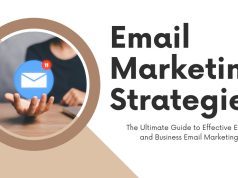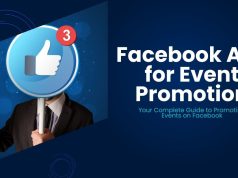Whether you’re in marketing, event planning, or just love getting people together for big events, as a Marketing Events Coordinator, you have all the most important qualities under your belt. But what does this role involve? And how do you get in on the action? A 3-day immersive master class will share everything from start to finish with beginner marketers and old professionals alike, looking for new avenues in their professional lives.
What Does a Marketing Events Coordinator Do?
A position as a marketing event planner calls for the individual to be responsible for organizing and executing activities that satisfy business marketing strategy objectives. These include everything from product launches to trade shows, networking events, conferences, and exhibitions. Arts these days are rather different than the old days. This new sort of performance, the marketing events coordinator is the mastermind behind the things that go smoothly.
Common Responsibilities
- Event Planning: Developing event concepts, creating budgets, and managing timelines.
- Vendor Coordination: Collaborating with venues, suppliers, and service providers.
- Promotions: Working with marketing teams to drive attendance through campaigns, email marketing, and social media.
- On-Site Management: Coordinating logistics on the event day, ensuring operations run smoothly.
- Post-Event Evaluation: Gathering feedback and analyzing data to measure the event’s success.
Marketing events coordinators are all about blending creativity with organization to create unforgettable experiences while achieving business objectives.
Why Marketing Events Coordinators Are Vital
Marketing events are crucial for building a brand’s visibility and establishing strong customer relationships. Events provide businesses with an opportunity to deliver their messages in interactive and engaging ways that traditional marketing tactics may not achieve.
Marketing events coordinators ensure that every detail—from the choice of venue to the post-event follow-up—is aligned with brand strategy. They are the bridge between concept and execution, keeping budgets in check and maximizing the ROI of events.
Skills Every Marketing Events Coordinator Needs
To thrive in this demanding role, a unique blend of hard and soft skills is required. Here are the core competencies:
Organization and Time Management
Events involve countless moving parts, from securing vendors to booking speakers. Strong organizational skills are a must to juggle deadlines and keep every element on track.
Communication and Interpersonal Skills
Coordinators work closely with vendors, clients, and internal teams. Clear, effective communication ensures everyone is on the same page.
Creativity and Innovation
From finding unique venues to brainstorming interactive event themes, creativity is key for making events memorable and distinct.
Budgeting and Financial Planning
Ensuring events stay within budget without compromising quality is a crucial part of the job. Proficiency in financial management tools is a bonus.
Problem-Solving Abilities
Unexpected challenges will arise (and they will!). The ability to think on your feet, adapt, and troubleshoot is critical.
Marketing Savvy
Events are an extension of the brand’s marketing strategy. Coordinators should understand marketing basics like target audiences, branding, and promotion strategies.
Tech-Savviness
Event coordination often requires familiarity with project management software (like Trello or Asana), event registration platforms, and sometimes even graphic design tools.
How to Become a Marketing Events Coordinator
If this career sounds like a match for you, here are the steps to get started.
1. Gain Relevant Education and Experience
While a degree in marketing, communications, or event planning is helpful, it’s not always required. Practical experience through internships, volunteering, or entry-level roles can be equally valuable.
2. Build a Portfolio
Showcasing your ability to organize and execute successful events is critical. Include photos, testimonials, and metrics like attendance numbers or surveys demonstrating the value you brought to the table.
3. Network in the Industry
Get involved with local marketing or event planning groups. Attend networking events, trade shows, and workshops to grow your professional connections.
4. Master Event Management Tools
Familiarize yourself with software and platforms commonly used in event management. Examples include Canva for design, Eventbrite for registration, and HubSpot for marketing.
5. Secure an Entry-Level Role
Look for job titles like “event assistant” or “junior marketing coordinator.” These positions will give you hands-on experience and prepare you for more advanced roles.
6. Stay Up-to-Date
Marketing trends and technologies evolve constantly. Attend industry conferences and follow influential event planners and brands to stay in the loop.
Marketing Events Coordinator in Action
Here’s an example of what a marketing events coordinator might do for a single event:
- Pre-Event: Coordinate with the creative team to design promotional materials, finalize venue contracts, and send out invitations to the guest list.
- During the Event: Oversee setup, manage attendee registration, and troubleshoot technical issues.
- Post-Event: Send thank-you emails to attendees, post event highlights on social media, and prepare a report based on attendee feedback and engagement metrics.
This cycle repeats itself across multiple events throughout the year, keeping the role dynamic and rewarding.
The Future of Event Marketing
The role of a marketing events coordinator is evolving as technology advances. Virtual and hybrid events, for example, are becoming increasingly popular. Coordinators now often work with streaming platforms and virtual engagement tools to connect with global audiences.
Additionally, data and analytics play a larger role in the success of events. Metrics like attendee engagement, ROI, and social media reach help coordinators refine their strategies and demonstrate the value events bring to the business.
Bring Your Event Coordination Dream to Life
For those who thrive on creativity, organization, and collaboration, being a marketing event coordinator is an exciting avenue to take. The tradeoff has no parallel: although hard effort and endless adjusting are required, there is nothing compared with the satisfaction of seeing a successful project brought to fruition.
If you are prepared to take this first step towards a career, then start out by acquiring practical experience and developing the kind of skills just mentioned. For more tips about the marketing business world, take advantage of our free resource library, and check out your first piece today!









